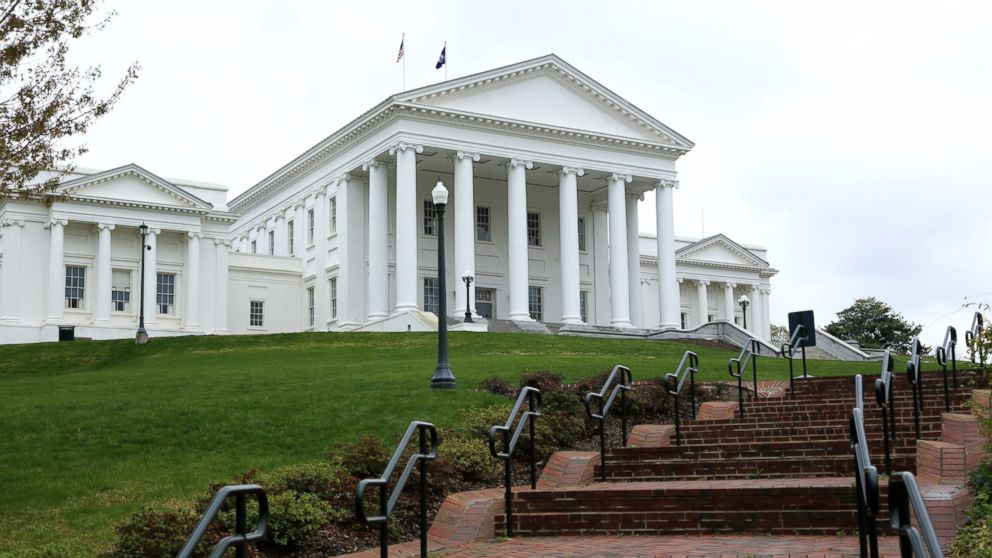Protest Over Virginia Bill to Shield Death Penalty Drug Makers
States have shielded the identity of drug suppliers in recent years.

— -- Hundreds of religious leaders in Virginia gathered today in an effort to stop a proposed amendment that would allow suppliers of death penalty drugs to remain anonymous.
The amendment proposed by Governor Terry McAuliffe would add Virginia to a growing number of states that do not identify the suppliers of their execution drugs.
At least 500 faith leaders from the community met at a rally to protest the amended bill. “It is no compromise -- it is wrong, plain and simple,” said Rich Cizik, of the New Evangelical Partnership for the Common Good.
“It violates decency, government transparency and certainly the biblical value of integrity,” he added. “This is a sleight of hand."McAuliffe dropped a previous proposal that said prisoners would be put to death by electric chair if no drugs were available for lethal injection.
The governor's office said the amendment was an attempt to find middle ground with lawmakers who wanted to revert to using the electric chair for executions. They contend allowing manufacturers to remain confidential will ensure continued supply.
“It’s the only practical way we will come by these drugs,” Brian Coy, a spokesman for the governor said.
The proposed amendment states, "The identities of any pharmacy or outsourcing facility that enters into a contract with the Department for the compounding of drugs necessary to carry out an execution by lethal injection... shall be confidential."
Lawmakers, "have the opportunity to be part of the solution," McAuliffe told the Associated Press last week. "If they pass up that opportunity, they will bring the death penalty to an end here in Virginia," he said.
At least 12 states have similar laws shielding death penalty drug suppliers, including Arizona, Arkansas, Florida, Georgia, Louisiana, Missouri, North Carolina, Ohio, Oklahoma, South Dakota, Tennessee, and Texas, according to the Death Penalty Clinic at the UC Berkeley Law School.
In recent years, drug makers -- both in the U.S. and in Europe – have stopped selling the common execution drug sodium thiopental, which prisons have used for executions.
The states have turned to alternatives such as compounding pharmacies, which mix personalized medications based on specifications from doctors or patients, for access to these drugs, according to the Death Penalty Information Center.
The use of compounding pharmacies, which are not subject to oversight from the U.S. Food and Drug Administration unless they are large-scale and listed as an "outsourcing facility," has been controversial. These kinds of pharmacies are usually address the needs of a single or small number of patients.
Anti-death penalty advocates note that these secrecy laws mean it can be impossible for the public or even for a condemned prisoner to know who will provide the medication to be used at execution.
"In the end it allows for executions to be carried out for no transparency and no oversight and no accountability,” Megan McCracken, a lawyer for the Death Penalty Clinic at UC Berkeley told ABC News. “That is deeply disturbing because, predictably, what we’ve seen is a lot of very bad executions that haven’t gone according to plan."
Robert Dunham, executive director of the Death Penalty Information Center, said the secrecy is intended to shield providers from harassment. But he said he has not heard of any cases where the execution drug providers have reported harassment.
"The basic principal of open government is that while we want to trust our public officials we also want to verify they’re telling us the truth," Dunham told ABC News. "While we want them to be competent, we want to have oversight that they in fact are. The secrecy laws fly in the face of both of these principles.”
Several botched executions in the past few years have captured public interest and drawn attention to this issue.
Last year, Georgia inmate Kelly Gissander's execution was temporarily halted hours before it was scheduled to begin due to a "cloudy" drug. The source of that drug, whether it was a compounding pharmacy or other drug manufacturer, was not made public. Gissander was executed months later after the state and U.S. Supreme Court declined to stay her death sentence.
The U.S. Supreme Court voted to allow the use of the drug midazolam in executions last year, despite two cases where the drug was accompanied by extreme complications during the procedures.
Because executions are not a medical procedure, the U.S. Food and Drug Administration does not regulate the drugs. Certified anesthesiologists can risk losing their certification if they consult or participate in an execution, according to a 2010 notice from the American Board of Anesthesiologists.




